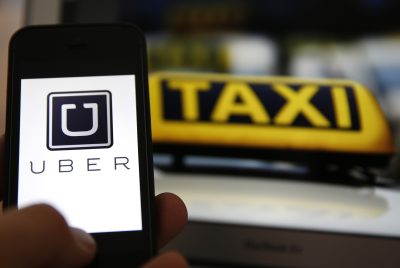Normalising Uber, Misleading Practice. Ruling of the EU Court of Justice (CJEU)

It was something of a clanger for the ride hailing service that has made authorities across the globe sceptical and stroppy. Uber has lobbied, cajoled, and bullied its way into the transport markets of the globe, while still claiming to be a humble, facilitating technology company.
The legal team at Uber has, at times, been ingenious. At other times, it has been disingenuous. Conventional rules on tax, regulation and governance are there to be flouted, if not danced around. Sprouting from the technology climes of California, it has run on the myth that it merely oils the wheels between paying customers and enterprising drivers, acting as connector and facilitator that bypasses traditional formats of transport. Using a digital app as the basis of connecting the driver with the customer, the argument has been much like that of the torturer and the priest: the priest remains clean as the torturer gets his hands dirty.
Spotting this problem in 2014, Asociación Profesional Élite Taxi, a professional taxi drivers’ association in Barcelona claimed that Uber, through Uber Systems Spain, had been engaging in misleading practices, in addition to the usual accusation of unfair competition. Neither Uber Systems Spain, nor those non-professional drivers associated with the venture, had the requisite authorisations and licences required in the metropolitan area of Barcelona.
As Article 4 of the relevant law stated,
“The provision of urban taxi services is subject to the prior grant of a license entitling the license holder for each vehicle intended to carry out that activity.”
Only town halls and “competent local authorities” in the relevant territory could issue such licenses.
The Juzgado de lo Mercantil No 3 de Barcelona, otherwise known as Commercial Court No 3, Barcelona, Spain, wisely found that the issue should have broader international significance, notwithstanding the localised activities of Uber Systems Spain. Not having local authorisations and licenses in Spain was a question that deserved the scrutiny of the Court of Justice of the European Union.
As the Advocate General Szpunar explained in May, the question for Uber was whether its activities constituted “a transport service or service in the field of transport for the purposes of Article 58(1) TFEU (Treaty on the Functioning of the European Union) and Article 2(2)(d) of Directive 2006/123.” It was an opinion that would set the ground against Uber, claiming that the company “exerts control over all the relevant aspects of an urban transport service”.
As with all matters legal, classification is king. The issue of not having prior administrative authorisation hinged on the issue what form of classification could apply to the service, be it that on the provision of services within the internal market, or that of the directive on electronic commerce. Uber was naturally pitching for the line that was merely engaged in electronic commerce, a technology middleman.
That found little weight with the judges. Uber’s services “must be excluded from the scope of the freedom to provide services in general as well as the directive on services in the internal market and directive on electronic commerce”.
“It follows that, as the EU law currently stands,” went the judgment of the court, “it is for Member States to regulate the conditions under which intermediation services such as that at issue in the main proceedings are to be provided in conformity with the general rules of the FEU Treaty.”
The regulations and directives of the EU, taken as a whole, “must be interpreted as meaning that an intermediation service” such as Uber’s, “the purpose of which is to connect, by means of a smartphone application and for remuneration, non-professional drivers using their own vehicle with persons who wish to make urban journeys, must be regarded as being inherently linked to a transport service”. It followed that they “must be classified as ‘a service in the field of transport’”.
Uber’s reaction to such rulings is always a mix of indignation and reluctant acceptance, framed as a wounded pioneer in a world of ignoramuses. In the words of a spokesman,
“millions of Europeans are still prevented from using apps like ours.”
Then comes the conciliatoriness.
“As our new CEO has said, it is appropriate to regulate services such as Uber and so we will continue the dialogue with cities across Europe.”
The impacts of the CJEU decision are also being shrugged off. The decision, after all, specifically focuses on peer-to-peer ride services, still frowned upon in such jurisdictions as Belgium, France and Spain. Uber is also taking the professional route in some cities – Madrid and Berlin stand out as examples.
The move to normalise Uber within the transport architecture of urban environments, despite continued resistance, is proving inexorable. As Natasha Lomas of Techcrunch notes,
“any faint hope the company might still have entertained of being given a legal green light to speed down a digital EU fast-lane and overtake local transport interests is gone.”
Dr. Binoy Kampmark was a Commonwealth Scholar at Selwyn College, Cambridge. He lectures at RMIT University, Melbourne. Email: [email protected]

